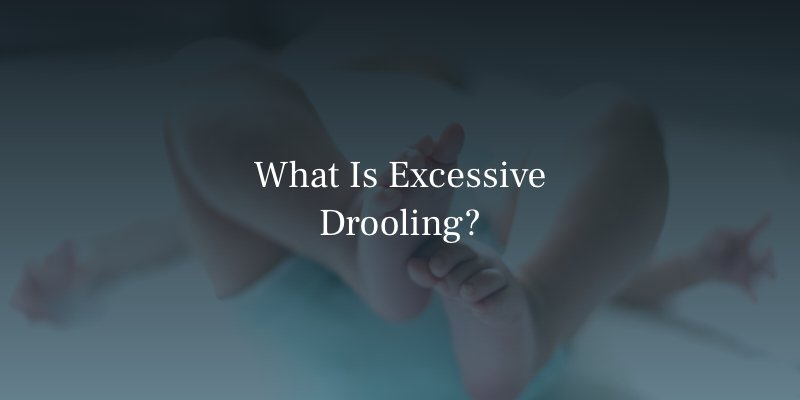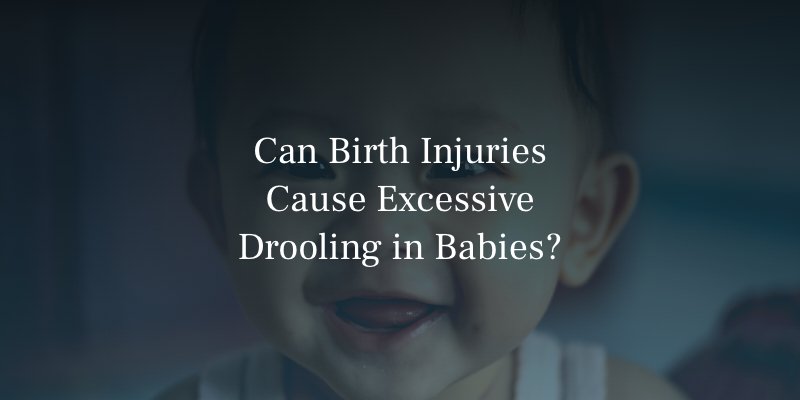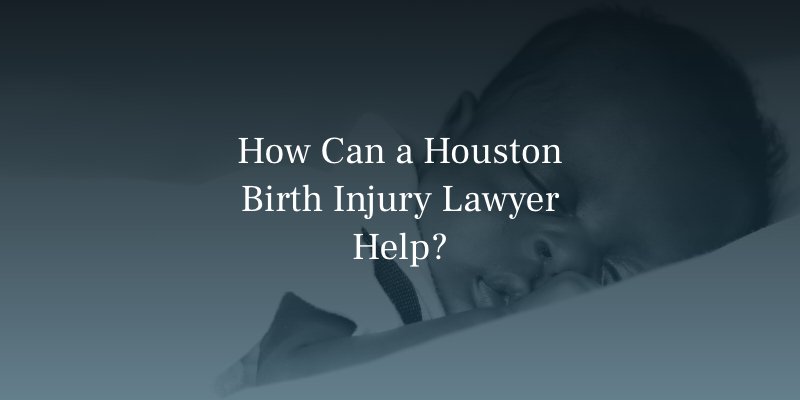Drool is to babies as perspiration is to an adult on a hot day. It’s inevitable and normal! But excessive drooling in babies isn’t normal. It can be a sign of a birth injury.
If you notice your baby drooling a lot, don’t automatically assume they’re sick. But do contact your doctor. They can evaluate your child and rule out the possibility of a birth injury.
Concerned about your baby’s drooling? Our Houston birth injury team at Hampton & King is here to help you understand the medical and legal implications. Call us at (713) 489-0993 or complete our easy online form to schedule your free consultation.

What Is Drooling?
Drooling is the unintentional flow of saliva from the mouth. It’s a common and completely normal part of infancy, especially in the first two years of life. Babies drool because their salivary glands are active, but they haven’t yet developed full control over their mouth muscles or the ability to swallow saliva consistently.
In most cases, drooling is just a harmless sign of development. It often increases when a baby is teething or exploring the world with their mouth. But excessive or prolonged drooling, especially when it interferes with feeding, breathing, or causes skin irritation, could be a sign of an underlying condition or even a birth injury.
Is your baby drooling a lot? (Too much saliva production?)
Drooling is a normal and natural part of a baby’s development. But when you’re constantly dabbing a miniature Niagara Falls from your child’s chin, you might wonder if it’s too much.
Why does a drooling baby drool? The primary reason is their salivary glands aren’t fully developed. Also, they haven’t yet mastered the swallowing muscles needed to swallow or manage their saliva. The result is excess saliva building up in their mouths.
Drooling may simply be a sign of a developing digestive system, and your baby’s salivary glands are just doing exactly what they’re supposed to, that is, initiate saliva production.
Signs your baby may be drooling too much include:
- Constant dampness and uncontrollable drooling
- Redness, irritation, or inflammation around the mouth
- Chin rash or irritation
- Difficulty feeding or breathing
- Excessive coughing and gagging
- Constant mouth infections
- Irritability, restlessness, or changes in sleeping patterns
- Unusual behavior (fussy and uncomfortable because of the drool)
If you’re dealing with constant dampness, rashes, or other symptoms of drooling, it’s worth checking with your doctor to see if your baby has an underlying health condition.
Why is My 2 Month Old Drooling So Much?
At 2 months old, it’s completely normal for babies to start drooling more. Around this time, their salivary glands become more active – even though they haven’t yet learned how to properly swallow saliva. This developmental stage often leads to a constant wet chin and frequent bib changes!
In most cases, drooling at this age isn’t a cause for concern. However, if the drooling is accompanied by feeding difficulties, choking, or breathing problems, it’s important to seek medical advice. These symptoms could indicate a medical issue or, in rare cases, a birth-related condition.
Why is My 3 Month Old Drooling So Much?
By 3 months of age, drooling tends to increase – especially as your baby starts to explore the world through their mouth. Teething may be right around the corner, and your baby might be chewing on their hands more frequently. This behavior naturally stimulates saliva production.
However, drooling that seems extreme, or that comes with other issues like gagging, coughing, or trouble feeding, could point to an underlying problem. In some cases, it may be a sign of oral-motor issues or neurological conditions that affect swallowing.
Should I worry about my baby drooling at three months?
This is a common question that parents have because it seems like their child’s saliva glands start working overtime around this age. But there’s a good reason why young babies drool a lot at around three months of age: teething.
Teething is a common cause of increased drooling around the three-month mark. Teeth start arriving between 3 to 7 months of age. The discomfort of teeth pushing through the gums can lead to excessive saliva production and drooling.
Common Causes of Excessive Drooling in Infants
Why is your baby drooling so much? That’s a question that you’ll need help from a pediatrician to answer. But here are some of the possibilities:
- Teething. As new teeth start to emerge through the gums, the irritation and discomfort can stimulate increased saliva production. Remember, a baby drooling at three months in excess could be due to teething.
- Gastroesophageal Reflux (GERD). GERD is a condition in which stomach contents flow back into the esophagus. Babies with GERD might produce more saliva in response to the reflux
- Infections and illnesses. Infections can cause an increase in saliva production and drooling as the body’s immune response kicks in.
- Medications. Some medications can cause excessive drooling in babies as a side effect.
- Anatomical Issues. Certain anatomical issues, such as a tongue tie or lip tie, can affect a baby’s ability to swallow properly and lead to increased drooling.
Remember, treatment for excessive drooling in babies will depend on what’s causing it. In some cases, reducing drooling will be as simple as healing an infection or correcting a tongue tie.

Can Birth Injuries Cause Excessive Drooling in Babies?
While drooling is common in infants, excessive or uncontrollable drooling may point to an underlying medical issue, sometimes even a birth injury. Although it’s not the most frequent symptom, drooling can be a red flag when paired with other signs like muscle weakness, developmental delays, or feeding problems.
Birth injuries that affect the nervous system or muscles may interfere with your baby’s ability to control their mouth and facial movements. This lack of muscle coordination, particularly in the lips, cheeks, and tongue, can make it difficult for a baby to manage saliva, leading to excessive drooling.
Some of the most common conditions linked to birth-related trauma that may cause excessive drooling include:
- Cerebral Palsy (CP) – A neurological disorder often caused by oxygen deprivation during labor or delivery, CP can affect motor control, including the muscles involved in swallowing and oral movement.
- Bell’s Palsy – Damage to the facial nerve during birth may result in temporary facial paralysis. If a baby can’t fully close their mouth or move one side of their face, drooling can occur.
- Hypoxic-Ischemic Encephalopathy (HIE) – A type of brain injury caused by reduced oxygen or blood flow during birth. HIE can lead to long-term motor challenges, including oral-motor dysfunction.
- Facial Nerve Damage – Pressure during delivery or the improper use of forceps can injure the facial nerve, disrupting saliva control.
- Other Neurological Disorders – While not always linked to birth injuries, conditions like autism spectrum disorder (ASD) and developmental delays can also affect oral muscle function and lead to excessive drooling.
These conditions may develop from a difficult or mishandled delivery. When a medical provider fails to monitor oxygen levels, delays performing a necessary C-section, or improperly uses delivery tools, they may be legally responsible for resulting injuries.
If your child’s drooling is severe, persistent, or accompanied by other unusual symptoms, it’s important to speak with a pediatrician. And if you suspect that medical negligence played a role in your baby’s condition, Hampton & King is here to listen. Call us at (713) 489-0993 or complete our simple online form to schedule your free consultation. Our best cerebral palsy lawyers in Houston are here to help your family pursue answers and justice.
Is Excessive Drooling a Sign of Cerebral Palsy?
In some cases, yes. Excessive drooling can be an early sign of CP, particularly when it’s paired with other symptoms like muscle stiffness, feeding issues, or delays in motor development. CP affects the muscles used for swallowing and facial control, which can make it difficult for a baby to manage their saliva.
Not all drooling is cause for concern – but if your baby’s drooling is accompanied by unusual muscle tone, poor head control, or developmental delays, it’s worth consulting a doctor. Early diagnosis and intervention can make a significant difference in outcomes.
Is Excessive Drooling a Sign of Bell’s Palsy?
Excessive drooling may be one of the symptoms of Bell’s palsy in infants. This condition causes sudden weakness or paralysis on one side of the face, which can interfere with your baby’s ability to control saliva. You may also notice other signs – such as a drooping eyelid or asymmetrical facial expressions – if Bell’s palsy is present.
Bell’s palsy can sometimes develop after birth as a result of trauma, viral infections, or, in rare cases, a birth injury. The condition is typically temporary, but it’s still important to get a full evaluation to rule out more serious underlying causes.
Is Excessive Drooling a Sign of Autism?
Excessive drooling alone isn’t enough to diagnose autism, but it can be one of several early signs. Some children on the autism spectrum may struggle with muscle tone or oral-motor coordination, making it harder to control saliva. However, autism typically presents with a broader range of developmental symptoms, including challenges with communication, social interaction, and repetitive behaviors.
If you’re concerned about your baby’s drooling along with signs like delayed speech, lack of eye contact, or unusual behavior, speak with your pediatrician. A multidisciplinary evaluation can help determine whether autism or another neurological condition is involved.
Can Birth Injuries Cause Excessive Drooling in Babies?
It’s rare, but birth injuries can also be the reason why a baby drools a lot. Excessive drooling is a common symptom of birth injuries that affect muscle control, such as cerebral palsy or Bell’s palsy.
In addition, autism and other neurological conditions can affect the baby’s ability to control their facial muscles and swallow properly.
Let’s take a closer look at each of these conditions:
Cerebral Palsy
Cerebral palsy (CP) is a group of neurological disorders that affect movement, muscle tone, and motor skills. Muscle control and coordination issues are common characteristics of CP. This lack of oral muscle control is one reason why babies with CP might drool a lot.
Bell’s Palsy
Bell’s palsy is a condition that causes sudden, temporary weakness or paralysis of the muscles on one side of the face. This is why babies with Bell’s palsy might drool in excess.
But don’t assume that Bell’s palsy is the culprit, just because you see your baby drooling. If they have this condition, there will be other signs. For example, they might have one droopy eyelid.
Autism
Excessive drooling in babies can also be a sign of autism. But a baby with autism will have other symptoms as well, such as:
- Developmental delays
- Muscle control issues
- Social challenges (such as lack of eye contact with caregivers)

How Can a Houston Birth Injury Lawyer Help?
Some birth injuries are the direct result of a doctor’s negligence. If you believe negligence was involved in your child’s injury, we’re all ears. Contact us to find out how Hampton & King may be able to help you obtain justice and compensation via a birth injury lawsuit.
Is You Baby Drooling Too Much? FAQs
At around 2-3 months old, your baby will probably start producing more saliva and drooling. This typically lasts until around the age of 12-15 months but can last until they’re 2. This happens when your baby starts teething, because saliva helps this process, by washing away food and bacteria.
If the drool comes with a fever, rash, or trouble eating, it’s definitely worth contacting your doctor. Also, if your baby drools a lot after they turn 2, it may be a sign of deeper issues. That’s another case that warrants a call to the doctor.
Yes, it is normal for a 2-month-old to drool. Drooling at this age is typically part of normal development. Babies drool more when their salivary glands develop (around 2 months) and they start teething and exploring (nibbling hands and toys can stimulate drooling).
At 3 months, babies drool and chew their hands as they start teething. It’s normal for them to explore and soothe gums. If this behavior persists past 2 years of age, talk to your doctor.
Drooling is common till age 2. If it continues after 2 or with speech troubles, check with a doctor.
Yes, pacifiers can make babies drool more. They drool as they suck and also as teeth grow.
Often, yes. It’s very normal for babies around 4-6 months to start teething, and drool as a result. Chewy behavior and fussiness during this time are normal too.




